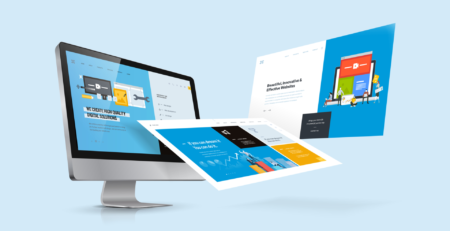Finding the Right Website Development Company: What to Look For
In the digital era, a strong online presence is important for any business. Quite often, your website serves as the first point of contact between your business and potential clients. As such, development forms a very crucial part in determining success. However, the task of selecting the right website development company is daunting. Given the many selections available, taking the time to be aware of what to look for will help in ensuring you partner with a company that caters to your needs while being in tandem with your business objectives.
1. Know Your Needs
Before reaching out to a website development company, it is essential that you know your business needs. Note the following:
- Objectives: For what would you want your website to achieve? Generate leads? Sell products? Offer information? Create a community? Knowing this in advance will help guide discussions with potential developers.
- Target Audience: Whom would you want to attract? Being aware of their target audience's preferences and behavior will help in designing a user-friendly website that resonates with them.
- Features and functionality: Consider what features you want to see in your website, for example, e-commerce solutions, content management systems, integrations with other tools and software.
It is in taking the time to outline these needs that you will be able to save yourself and the web development company a great deal of time and resources by making selection easier.
2. Check Their Portfolio
A good website development company should be proud of their work and willing to showcase this. Reviewing their portfolio can give one insight into their expertise and style. Checking the portfolio of a company, one should, among other things, take note of the following:
- Diversity of Projects: See if they have completed projects for a variety of websites in multiple industries. This may reflect very well the diversity with which they adapt to their clients and diversified needs.
- Design Quality and User Experience: Consider the design and overall user experience in previous work. A well-designed website should look nice, be easy to navigate, and responsive on different devices.
- Success Stories: Look for case studies or testimonials about how far their services have gone in benefiting their past clients. The information might help in understanding their capabilities and successes in reaching their client's goals.
3. Technical Expertise Check
Web development is pretty technical, with skills varying from great website design to complex programming. In this respect, when considering technical skills a website development company possesses, consider the following:
- Technology Stack: Ask about the programming languages, frameworks, and tools they use. Make sure they are familiar with the state-of-the-art technologies that best suit your project needs, whether they are frontend ones such as HTML, CSS, and JavaScript, or backend related to databases and servers.
- Mobile-Friendly Responsive Design: Since mobile devices are becoming the standard, a website really needs to accommodate that. Make sure the company has experience in creating responsive designs that would perform well on different devices and screen sizes.
- SEO Practices: A developed website is not only about looking good but also about visibility. Ensure that while developing, the company follows SEO best practices to improve your site's ranking on search engines.
4. Communication and Cooperation
Communication is a key activity in any web development process. The right website development company will not hide behind closed doors but will have you as its collaborator. Here go some main things to consider:
- Initial Consultation: A company that takes the time to listen to your ideas and needs right from the start shows their commitment to understanding your vision.
- Communication Channels: Observe what channels of communication they depend on, whether email, telephone calls, video conferencing, or project management tools. Ensure you are comfortable with the preferred methods.
- Project Management: Inquire from the company its approach to project management regarding timeline. A well-set process shows professionalism and timeliness.
5. Support and Maintenance
Ongoing support after your website goes live is important. A good website development company will provide a support and maintenance plan that will keep their clients covered for any issues that might arise. Consider the following:
- Support After Launch: Find out if the company will be able to provide any after-launch support services when the website goes online. These can include fixes, updates, and helping resolve technical issues.
- Maintenance Plans: The websites need frequent maintenance to ensure they are secure and updated and function well. One should ask if the company provides maintenance packages in managing your website for the long run.
- Scalability: Your business might grow, so should your website. A good development company should accommodate changes and future expansions for the site.
6. Pricing and Budget
While price shouldn't be the only factor, it's crucial to understand pricing models and how they fit into your budget. When you evaluate a website development company, you should consider the following:
- Clear Pricing Model: Consider working with a company that is transparent about the price estimate. You would like to know what you're paying for so that certain costs do not crop up later.
- Value for Money: Instead of going for the cheapest, consider the value that you will derive. High-quality development may cost more but can save you money along the way with fewer issues and better performance.
- Payment Milestones: Talk about payment terms and milestones. A company that may allow you to make staged payments based on project phases can give added security and assurance.
Conclusion
The decision of selecting a website development company should be chosen with great care, as this marks the beginning of creating your online presence. Know your needs, portfolio review, technical capability review, establishing communication, ongoing support, and maintenance considerations, and price analysis. Taking your time to make a careful selection will pay off in the form of a good-looking site that serves your business objectives. But with the right team by your side, you will be well on your way to achieving your digital goals.




